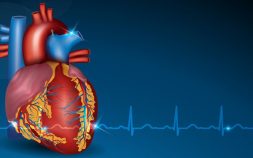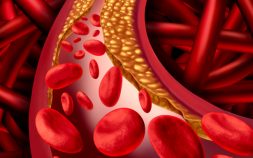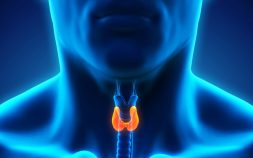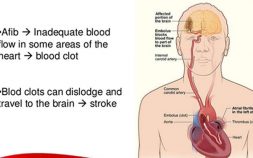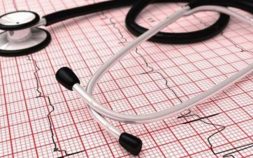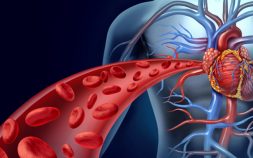-
The human body can experience distress in the blink of an eye due to many different types of ailments in a variety of ways. High blood pressure, or hypertension, most commonly occurs due to age, lack of activity, poor diet, or genetics. A heightened pressure that exceeds the prehypertension...
-
Twenty years ago, an irregular heartbeat could just be another sign that you were aging. Now, however, Atrial Fibrillation is a growing health risk that affects millions of people in the United States. Afib can be potentially deadly. However, improvements in diagnostic tools and treatments, especially regarding blood thinners, are...
-
Atrial fibrillation (afib) is a heart-related illness that causes irregular and rapid beating of the heart. If a person regularly suffers from afib, he or she will have a higher risk of stroke, heart failure, and dementia. What’s scary about this condition is that when it occurs, it usually...
-
The treatment of afib is important since it helps to slow down the heart rate, normalize the rhythm of the heart, and prevent the possibility of a stroke. When choosing the right treatments, you should follow medical guidelines from experts to the letter. This will significantly reduce the risk...
-
Have you experienced unexplained shortness of breath, lightheadedness, palpitations, chest pain, or general weakness? If yes, chances are you have atrial fibrillation (or afib as doctors commonly call it). Afib can be tricky as you can suffer from it without even knowing it. Epidemiological studies indicate that more than 3...
-
If you have atrial fibrillation, also known as Afib, your doctor has likely warned you that you are at a higher risk of stroke and heart disease. You are also probably already aware that keeping this condition under control requires lifestyle adjustments such as dietary restrictions, various prescription blood...
-
If you stay current with what’s unfolding in the medical field, you’re probably aware of one of the top health conditions running rampant today. Atrial fibrillation, or Afib, is a disorder once primarily associated with the elderly which is now seen affecting today’s younger generation. It is especially prevalent...
-
Atrial fibrillation, commonly known as Afib, is a condition where a patient experiences heart rhythm abnormalities characterized by rapid, irregular beating or arrhythmia. Atrial fibrillation is the most common form of arrhythmia, affecting 2% to 3% of the entire population of Europe and North America. This is millions of...
-
You may have heard of a heart condition by the name of Atrial Fibrillation, or simply Afib, as it has become more common of late. Afib is a medical condition where the atria, the upper chambers of the heart, contract abnormally and irregularly. These rapid heartbeats are referred to as...
-
If you have atrial fibrillation, there is a good chance you will suffer a stroke. Atrial fibrillation is a type of abnormal heart rhythm in which the two upper chambers of the heart contract rapidly and irregularly without fully pumping blood into the lower chambers. Studies into AFIB and...
-
Who Is Affected by Afib? Atrial fibrillation, dubbed as Afib, is a heart condition characterized by an irregular or abnormal heartbeat. This condition affects close to 3 million people in the USA and over 1 million in the UK. Approximately 2% of people with atrial fibrillation are between the...
-
Atrial Fibrillation is a medical condition characterized by irregular, rapid heart rhythm. It primarily affects the atria, which are the two upper chambers of the heart. The arrhythmia, an irregular rhythm, is caused by abnormal electrical impulses in the heart due to a lack of coordination in atrial activity....
-
Atrial fibrillation (Afib) is a common condition affecting a huge percentage of the population. The condition causes fast and erratic heartbeat involving the upper chamber of the heart. Statistically, people with this condition are five times more likely to have a stroke. This is because Afib interferes with the blood...
-
The prevalence of Atrial Fibrillation is set to increase in the coming decades. Thus, physicians are trying to formulate an action plan to circumvent the growing crisis. But what is the root of the condition? While the exact cause of Atrial Fibrillation remains unknown, the disease is more prevalent...
-
A-fib, aka Atrial Fibrillation, is a medical condition characterized by irregular and fast heart rate. Without early diagnosis and treatment, it can lead to blood clots in the heart, which can lead to a devastating stroke. Thus, cardiologists often advise A-fib patients to take particular blood-thinning medications on a regular...
-
Atrial Fibrillation is becoming increasingly widespread as a whopping 33.5 million people worldwide and 2.5 million people in the United States are victims of the condition. People with this condition have five times more risk of getting a stroke in comparison to people without it. Some risk factors that...
-
Atrial fibrillation, also known as Afib, is an irregular heartbeat that can lead to heart failure, blood clots, stroke, and other heart conditions. But what can you do if you have Afib and want to avoid kidney disease? Or what if you have both and want to avoid the dangers?...
-
Atrial Fibrillation is very commonplace today. Sadly, the main concern in patients with Afib is preventing strokes. When blood is pumped so fast and chaotically in the two small upper chambers of the heart, it forms blood clots. Those clots, then, could break free and move to the brain,...









